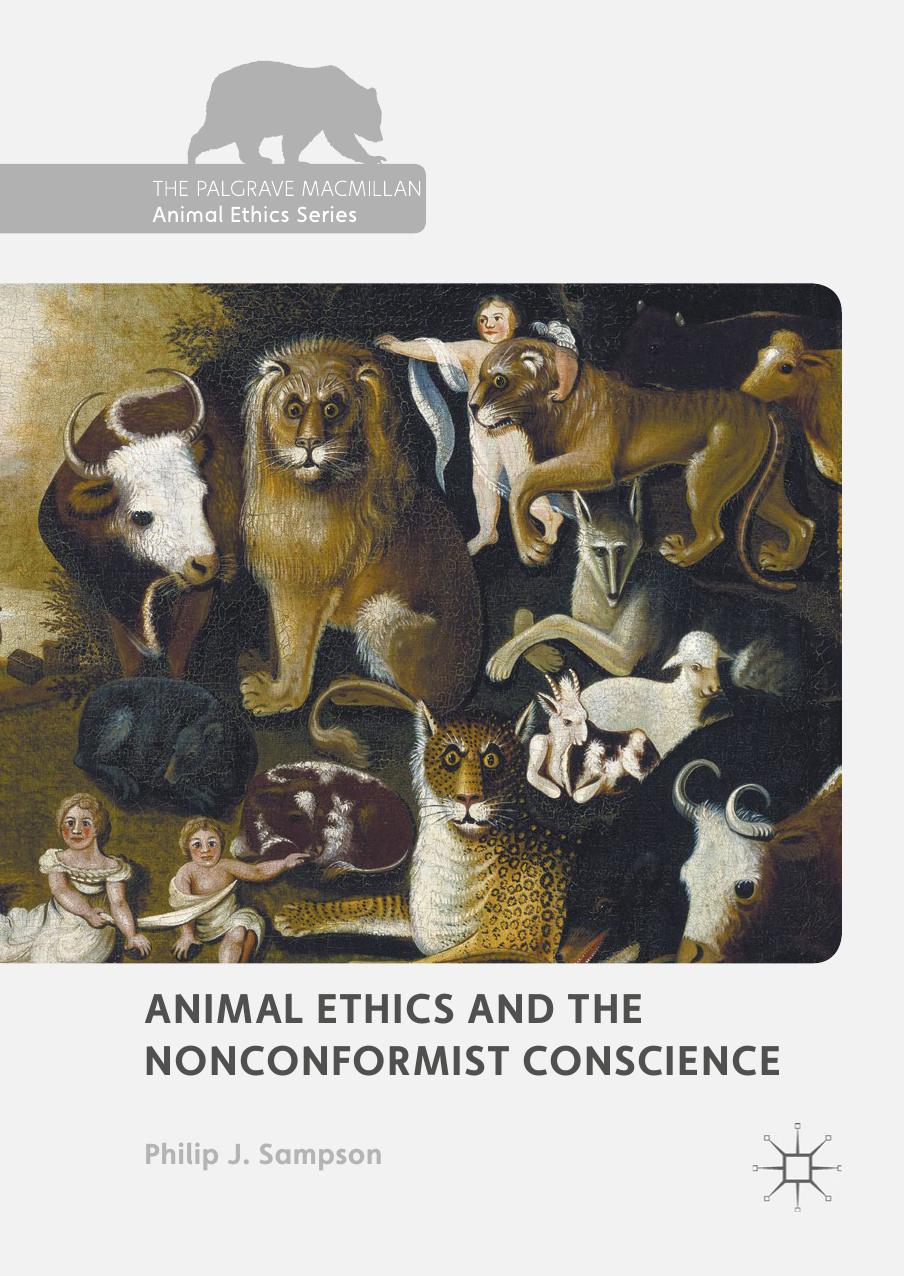Animal Ethics and the Nonconformist Conscience by Philip J. Sampson

Author:Philip J. Sampson
Language: eng
Format: epub, pdf
ISBN: 9783319964065
Publisher: Springer International Publishing
Animal-Human Relationships
As discussed in Chapter 2, the consensus narrative of theological anthropocentrism grants humans an unlimited and absolute right to do as we wish with animals. This way of speaking has little in common with the existence and experience of animals described above. It draws rather upon a modern language of ownership as absolute possession, which authorises us to use our property as we wish to achieve whatever end we desire, and is indifferent to the experience of chattels. Animals are, observed Kant (1784 [2001], 213), ‘man’s instruments’.
But few of the nonconformists discussed in this book had ever heard of Kant; not least because they were mostly dead by the late eighteenth century! Moreover, before the Industrial Revolution, there was no consensus about rights of ownership; many different patterns co-existed, each with its own authorisation of use. The nonconformists drew upon these resources as they struggled to reconcile the biblical canon with the pragmatic language of animals which they had inherited from the medieval church. In particular, they wrestled with the frequent Biblical pericope that ‘the earth is the Lord’s and everything in it’ which explicitly denies human ownership of anything (Lev. 25:23, Deut. 10:14, I Chron. 29:11–12, Ps. 24:1, Isa. 66:1–2, I Cor. 10:26). This produced a more complex and nuanced understanding of dominion than the consensus narrative of theological anthropocentrism suggests.
The nonconformists were clear that God had given humans dominion over the animals, but they overwhelmingly emphasised that dominion is not a right, it does not imply ownership, and we cannot use animals as we see fit. Dominion is a gift, we cannot claim it merely because we are ‘animated dust’ (Primatt 1776, 104). Thus George Walker (1641, 227) argues that man has ‘limited lordship and delegate dominion’, not ‘to doe with the creatures what he will, and to use them as hee listeth; but only to make them obey and serve him so farre as the superior Lord doth thinke them fit and convenient for his use.’
Download
Animal Ethics and the Nonconformist Conscience by Philip J. Sampson.pdf
This site does not store any files on its server. We only index and link to content provided by other sites. Please contact the content providers to delete copyright contents if any and email us, we'll remove relevant links or contents immediately.
| Administration & Medicine Economics | Allied Health Professions |
| Basic Sciences | Dentistry |
| History | Medical Informatics |
| Medicine | Nursing |
| Pharmacology | Psychology |
| Research | Veterinary Medicine |
The Ultimate Pet Health Guide by Gary Richter(1760)
All Things Bright and Beautiful by James Herriot(1749)
Vet in Harness by James Herriot(1696)
Predation ID Manual by Kurt Alt(1689)
Young James Herriot by John Lewis-Stempel(1519)
Chimpanzee Politics: Power and Sex among Apes by Frans de de Waal(1507)
Veterinary Echocardiography by Boon June A(1413)
The Natural Sciences: A Student's Guide by John A. Bloom(1398)
All Things Wise and Wonderful by James Herriot(1361)
Creatures of the Rock by Andrew Peacock(1355)
Vet in a Spin by James Herriot(1340)
Exotic Animal Hematology and Cytology by Campbell Terry W(1311)
Zoo Tails by Oliver Graham Jones(1307)
Dr. Kellon's Guide to First Aid for Horses by Eleanor Kellon(1301)
Black's Veterinary Dictionary by Edward Boden(1295)
David Sedaris Diaries by David Sedaris(1288)
Dr. Pitcairn's Complete Guide to Natural Health for Dogs and Cats by Richard H. Pitcairn & Susan Hubble Pitcairn(1188)
Calisthenics: Core CRUSH: 38 Bodyweight Exercises | The #1 Six Pack Bodyweight Training Guide by Pure Calisthenics(1159)
A Handful of Happiness by Massimo Vacchetta & Antonella Tomaselli & Jamie Richards(1148)
